HOW COCONUT BLOCKS ARE PRODUCED
Coco peat, also known as coconut bran, is an organic solution to replace soil in farming. Coco peat is widely used in high-tech agriculture such as: cultivating substrates, growing vegetables, cucumbers, strawberries, melons...
However, it is necessary to determine what quality coco peat is and whether it is suitable for the type of tree you intend to grow or not. To evaluate the quality of coco peat, in addition to the parameters (which will be clearly stated in another article), it is necessary to know how coco peat is produced.
HOW COCONUT BLOCKS ARE PRODUCED
Coco peat, also known as coconut bran, is an organic solution to replace soil in farming. Coco peat is widely used in high-tech agriculture such as: cultivating substrates, growing vegetables, cucumbers, strawberries, melons...
However, it is necessary to determine what quality coco peat is and whether it is suitable for the type of tree you intend to grow or not. To evaluate the quality of coco peat, in addition to the parameters (which will be clearly stated in another article), it is necessary to know how coco peat is produced.
Before going into details, it is necessary to clarify some concepts as follows:
Coconut shell
Coco peat
Coir
Coconut chips
1. Where is coco peat produced?
Coco peat is most produced in Asian countries with tropical climates. Sri Lanka and India are the two largest coco peat producing countries in the world. Recently, the coconut industry also plays an important role in the economy in some Southeast Asian countries such as Vietnam, Indonesia and the Philippines.
Coco peat is created from coconut shells through a number of processing steps. Processing processes and techniques will greatly impact the quality of coco peat and, as a result, determine the yield of the crop.
To ensure the quality of coco peat, the necessary production steps are as follows:
2.Choose coconut shell
Coconut shell is the raw material for producing coco peat, so the first step is to choose the right coconut shell. Coconut shells must be old coconut shells (do not use young coconut shells or Siamese coconut shells as they will create many tiny pimples that block the ventilation holes, which is not good for plants), and must not be mixed with sand or impurities.
3. Grind coconut shells
Crushing coconut shells is the process of separating long fibers. Long fibers are often used to make ropes, carpets, and car cushions. After separating the long fibers, there will be a mixture of pimples and medium fibers (length less than 10cm) and is often called untreated coconut fiber substrate. Untreated coconut fiber substrate has high lignin (and tannin (often called astringent) content that hinders plant growth, making it impossible for plants to absorb nutrients and air, causing causing stunted growth and leading to plant death.
4. Incubation
Incubation is one of the most important steps in the process of treating coir pimples. Currently in Vietnam, other than VinaTap Vietnam (produced according to the Dutch process), there is no other party that carries out this incubation process. The incubation process helps break down some unstable structures in coco peat, stabilizes lignin and cellulose, reduces bacterial activity, bacteria will consume less nitrogen leading to better results in the field. The incubation technique and incubation time is one of Israel's secrets that makes the difference in the quality of VinaTap Vietnam compared to other products.
5. Wash
Washing, also known as salt treatment, is a process to reduce salt in coco peat. Salinity in coco peat is measured by electrical conductivity (EC). Normally the washing process will end when EC reaches a value below 0.5 mS/cm.
6. Drying, drying and briquetting
Drying and curing reduces the moisture content of coconut fiber to less than 15%, enough to make cakes.
After drying (humidity below 15%), the coir peat is packed into cakes (normally sized 30cmx30cmx10-12cm with a weight of 5kg) for convenience in transportation and storage.
BENEFITS OF COCONUT PEANUTS
Coir peat is a natural waste product of the coconut growing industry and is also one of the most versatile organic growing media. Coir peat has the ability to naturally resist pathogens, the ability to retain water (helps save water as well as nutrients), and excellent breathability.
Benefits of coir peat substrate:
It is completely organic and reusable.
Homogeneous composition, odorless.
High moisturizing ability and excellent absorption.
High porosity helps promote root growth.
Contains natural organic substances and beneficial microorganisms.
Reasonable price, high quality.
Benefits of coco coir cake:
Save transportation costs (up to 75% reduction), storage costs.
Coir peat caked at low humidity (below 20%), avoiding the risk of pest infection during transportation and storage.
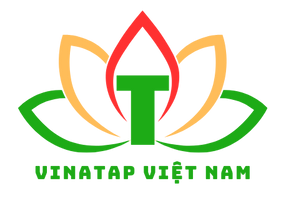



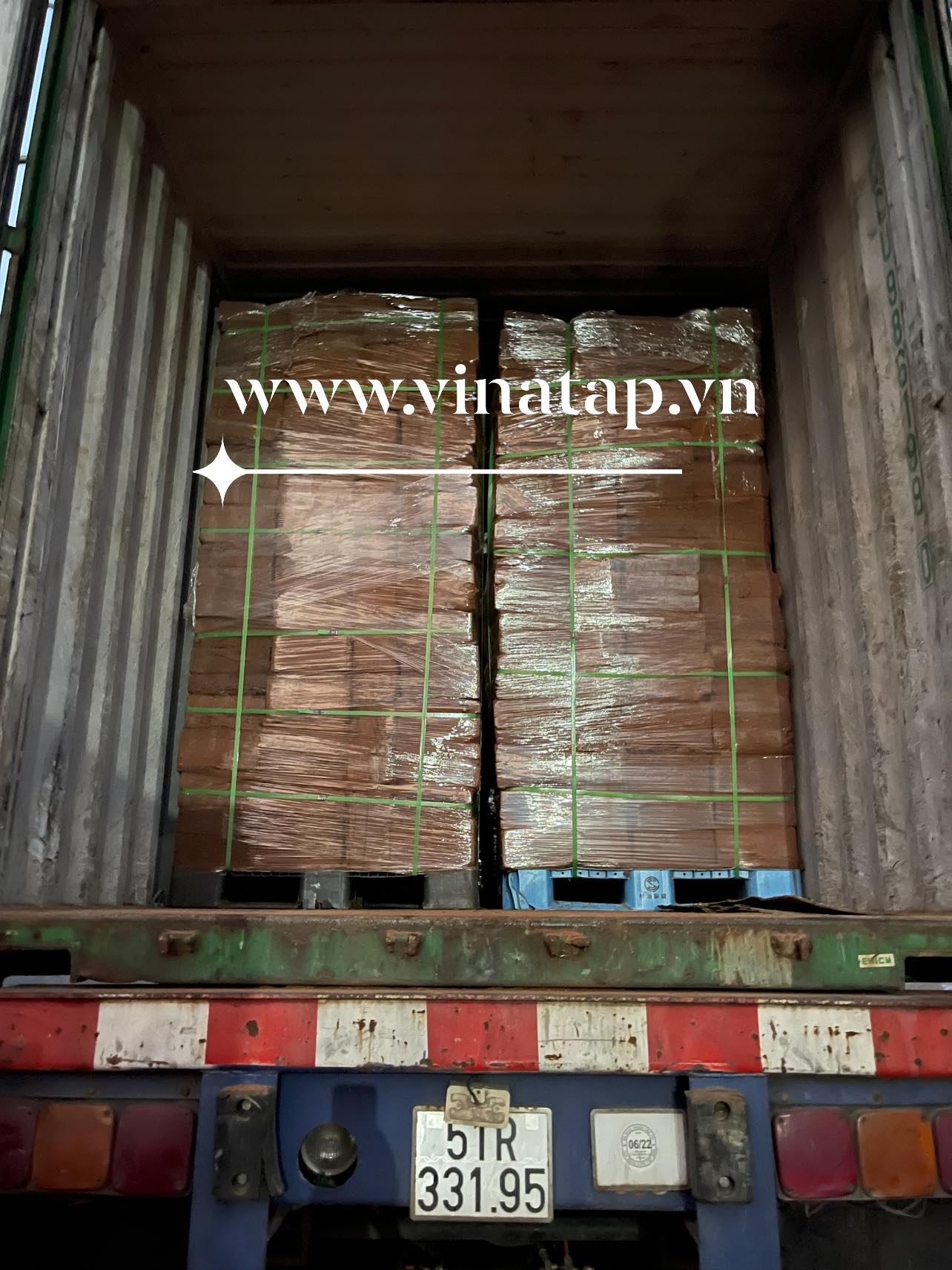
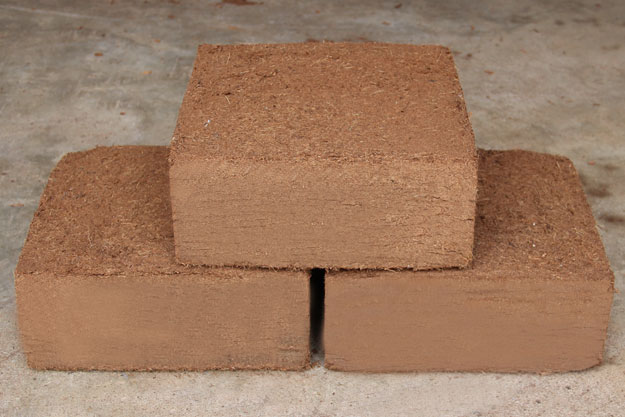
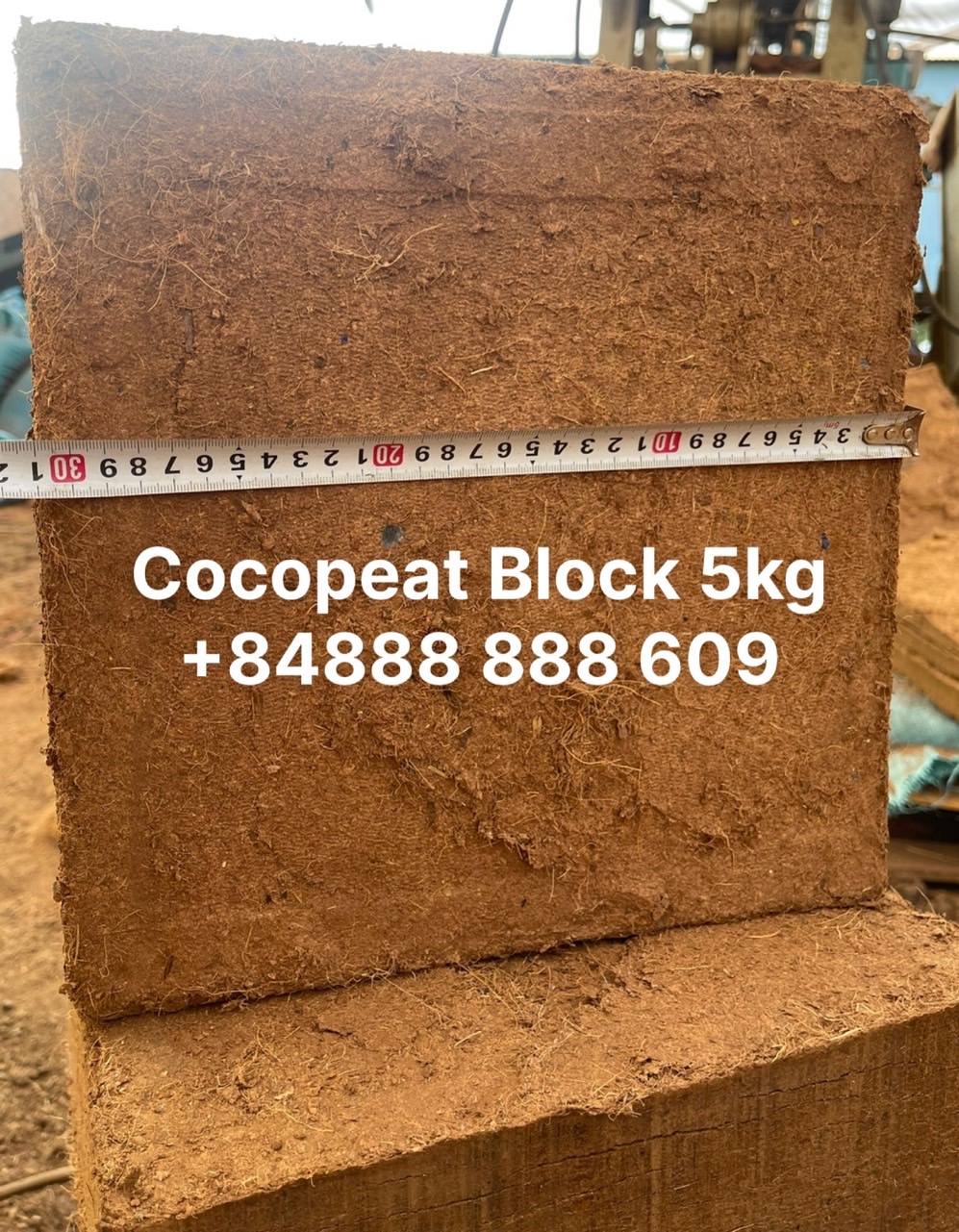
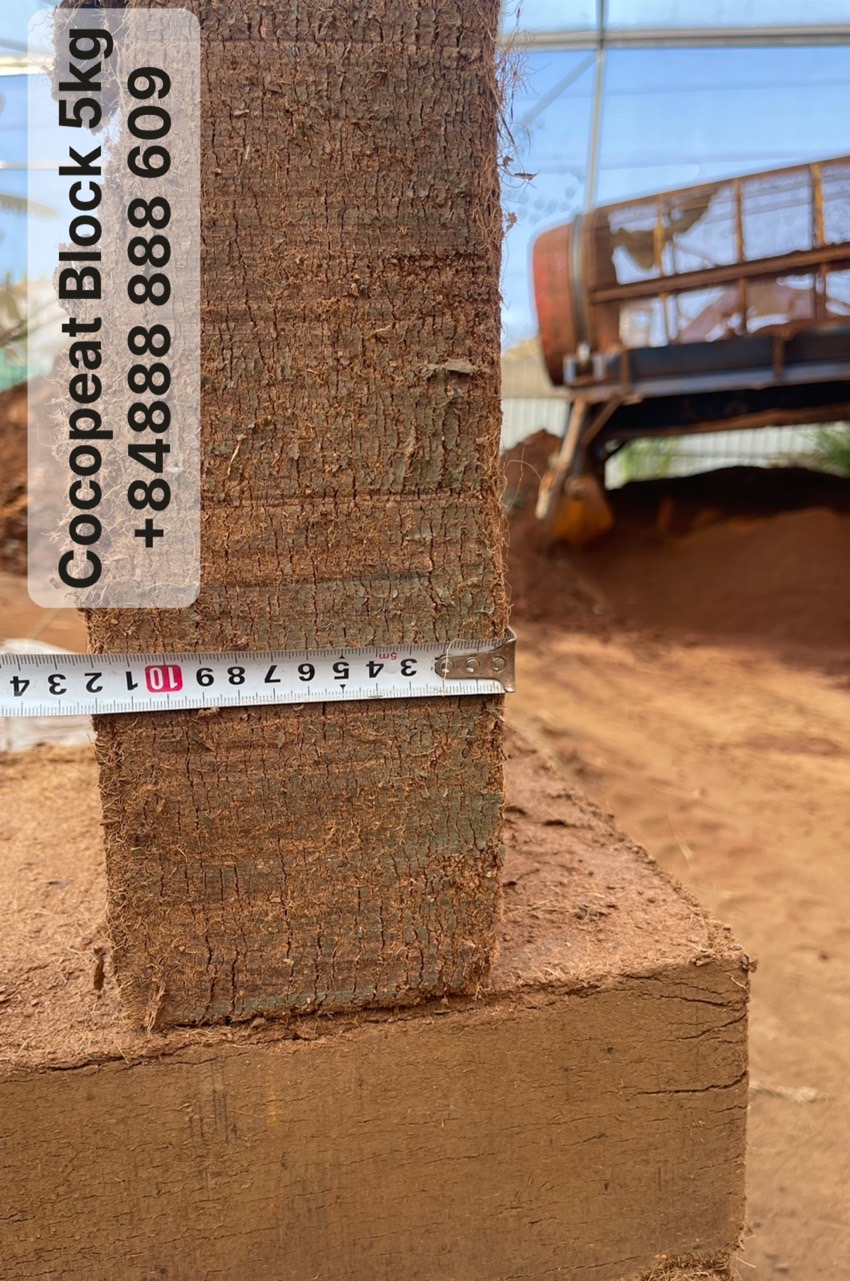








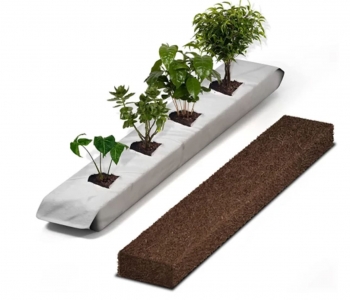
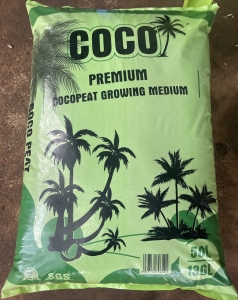
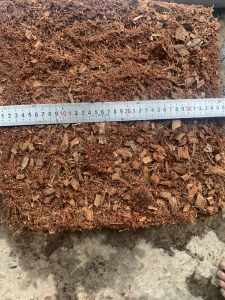
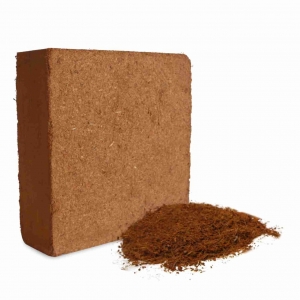
 Online: 3
Online: 3
 Total access: 4551420
Total access: 4551420